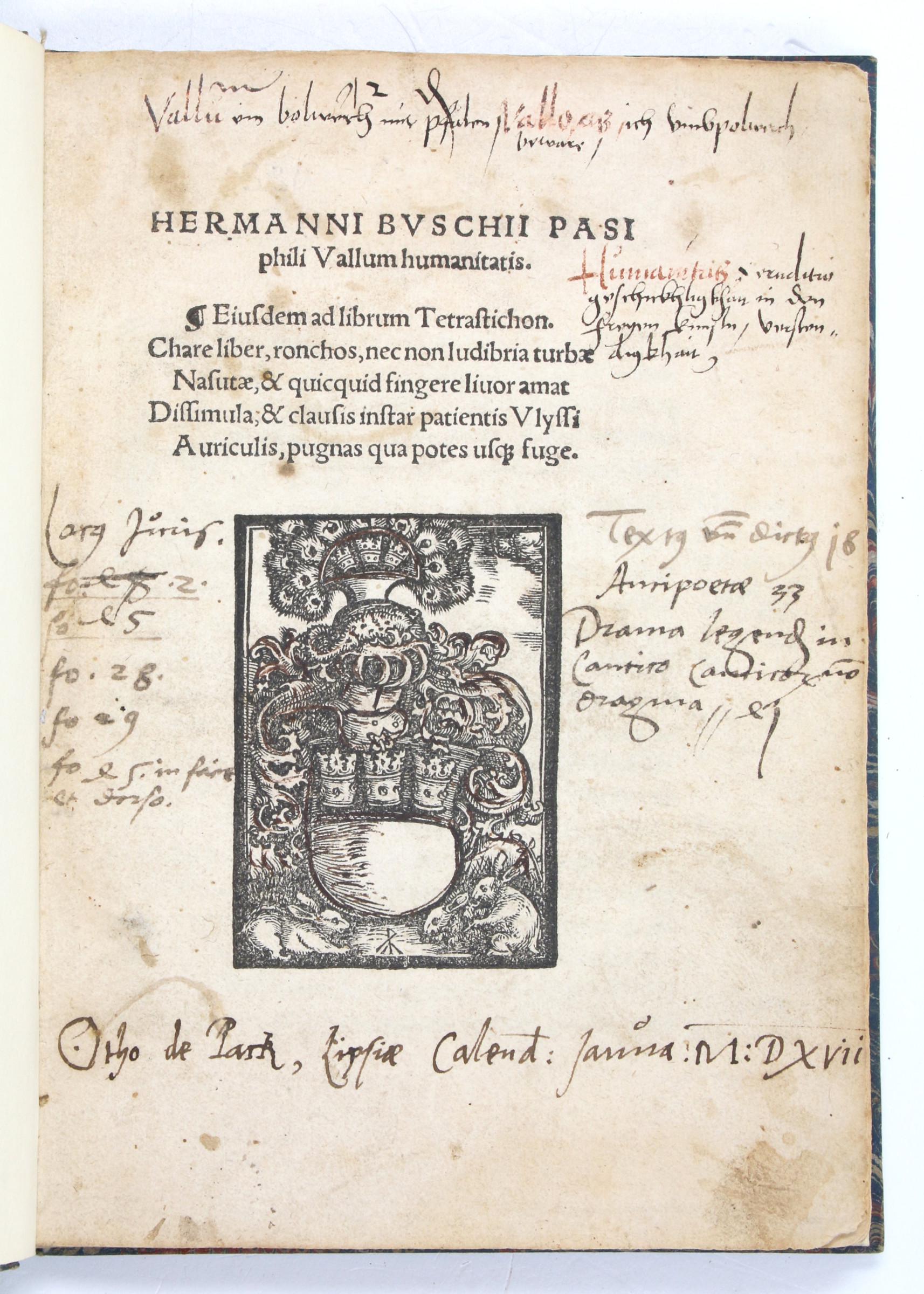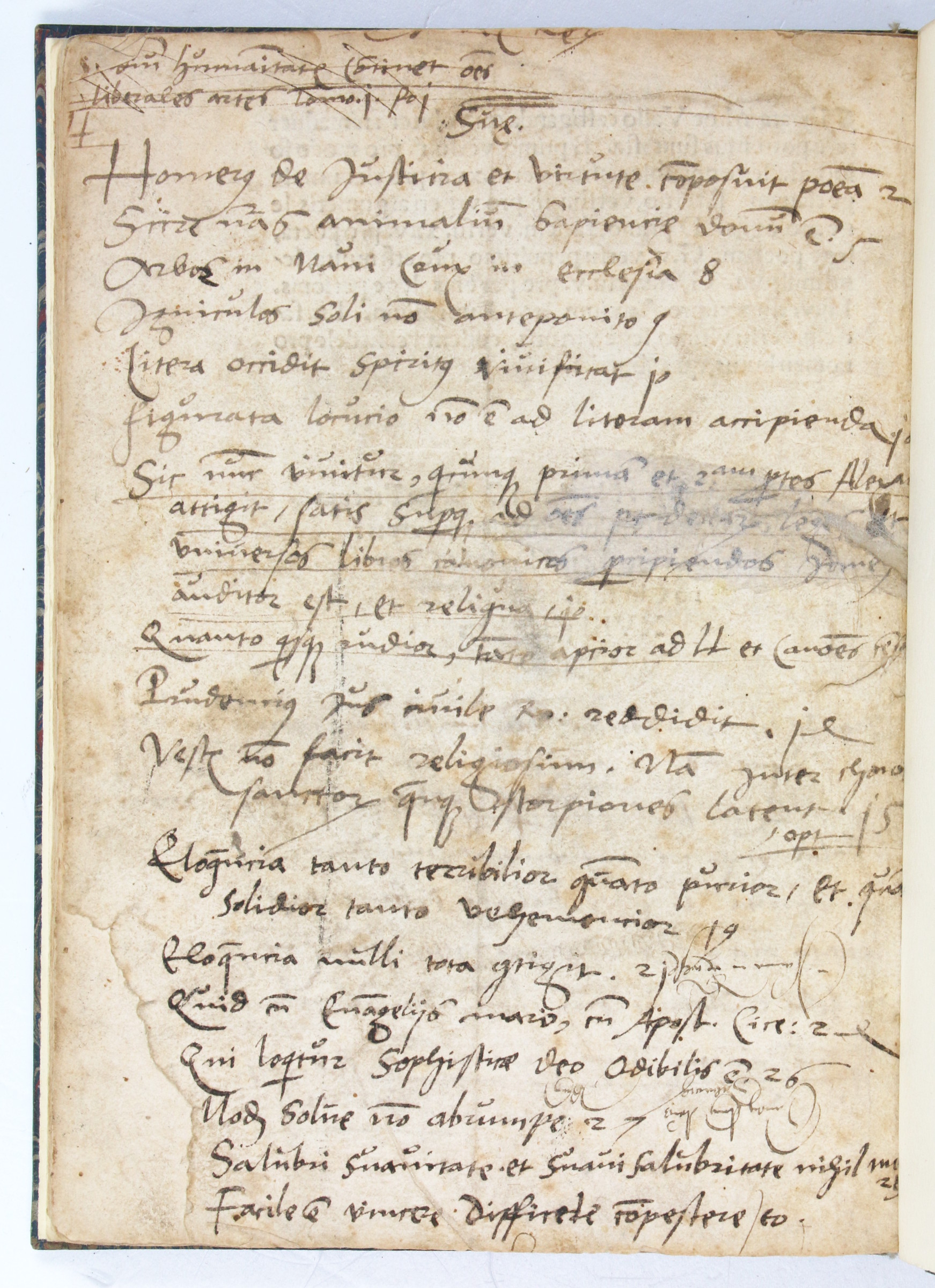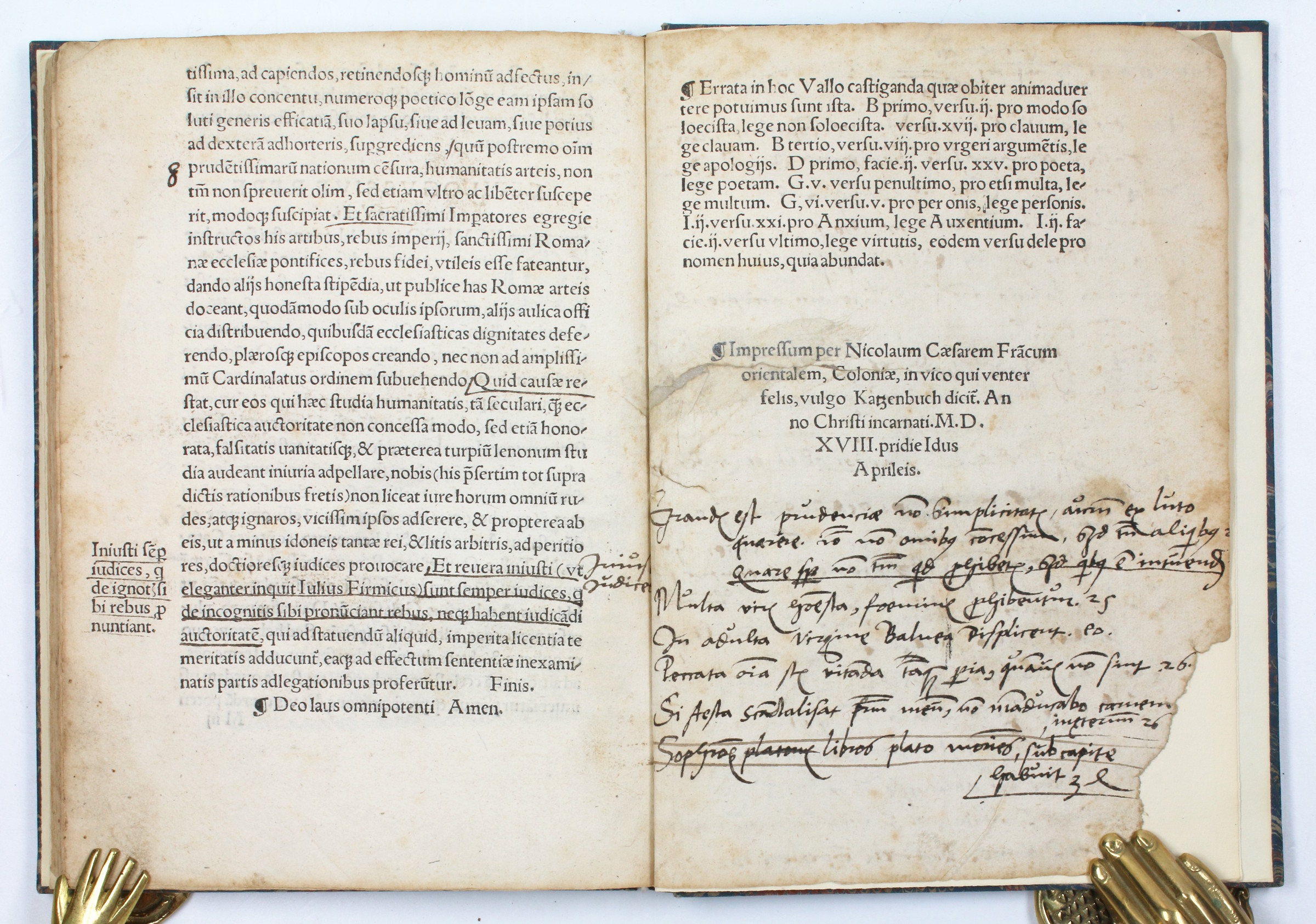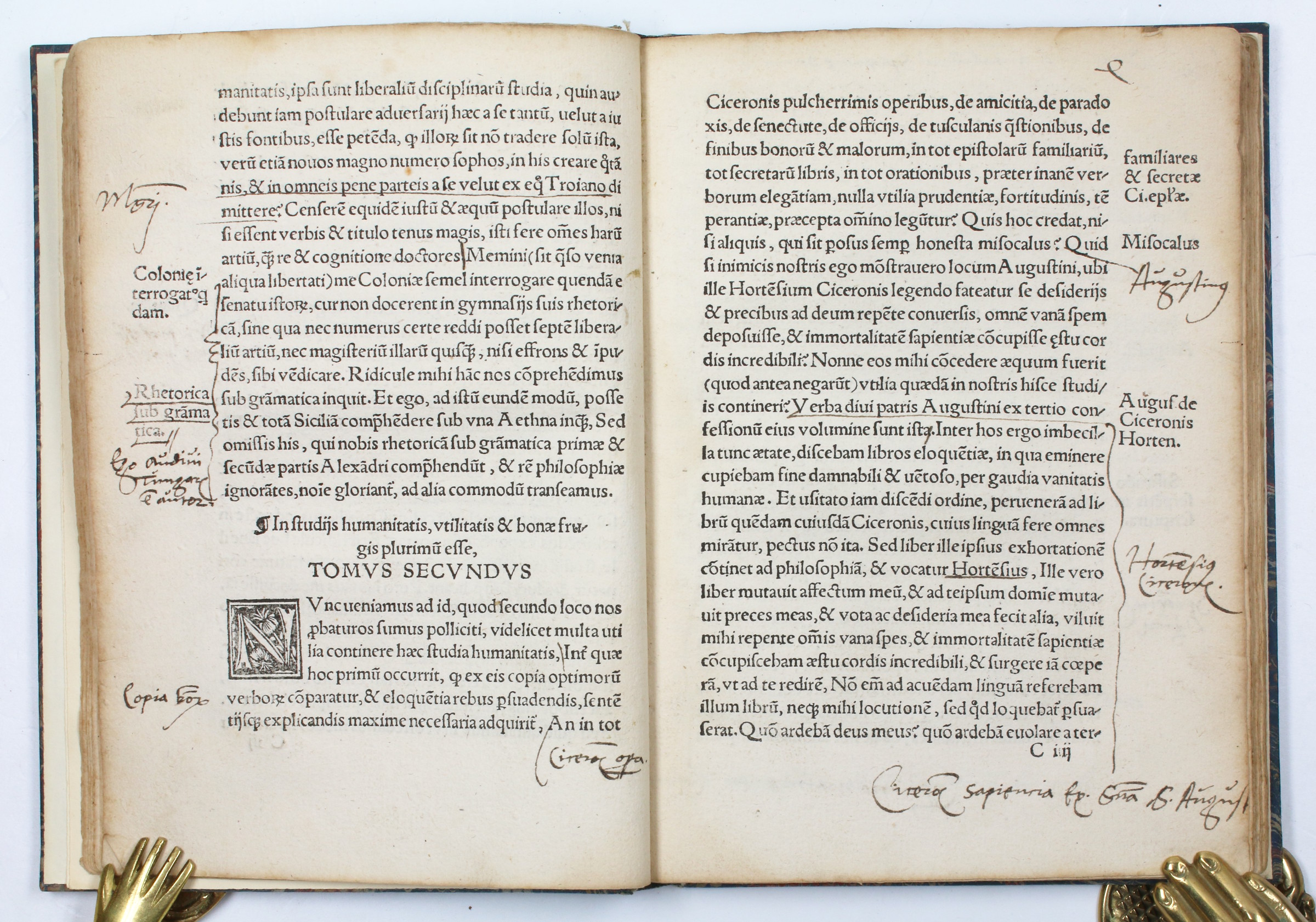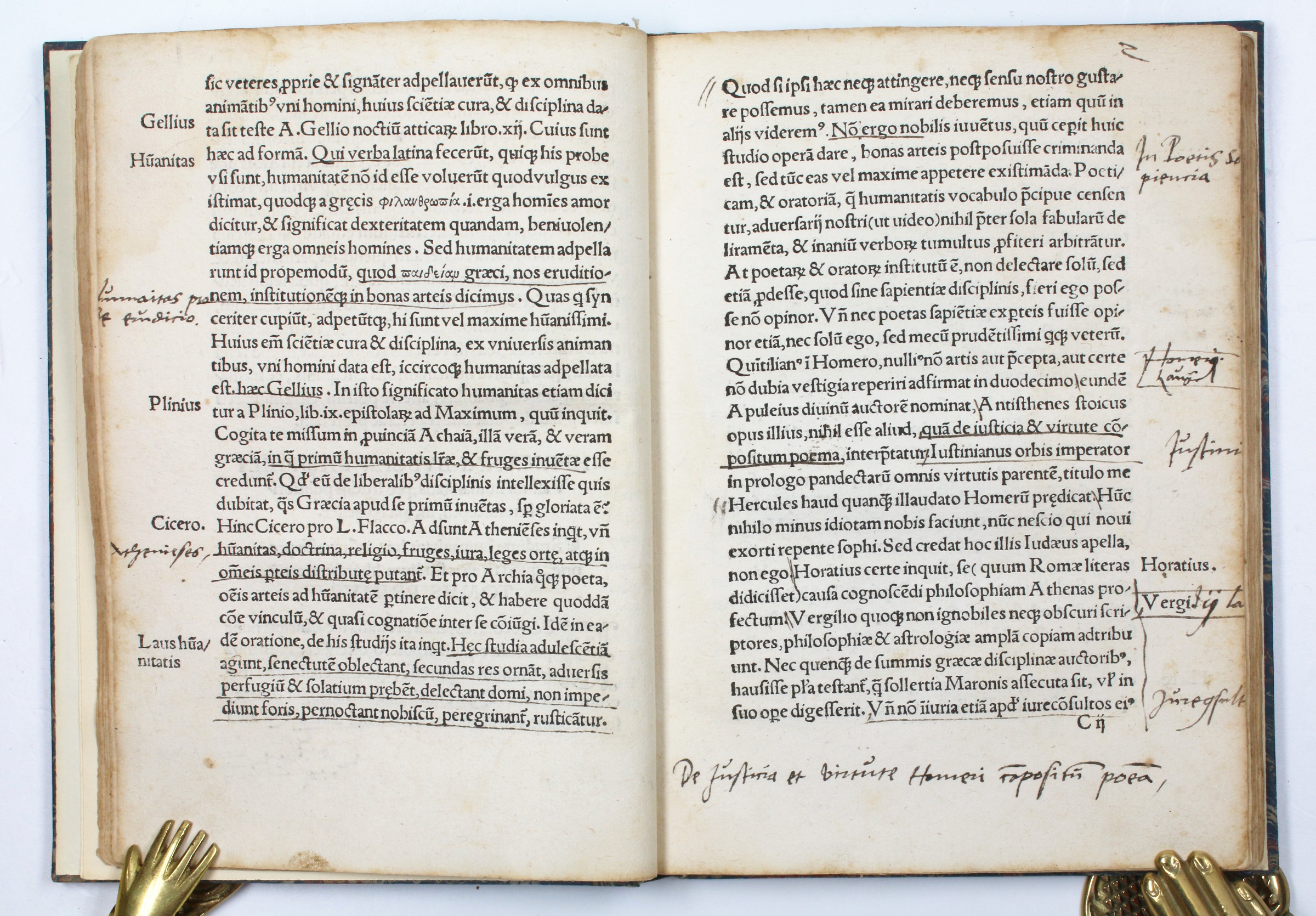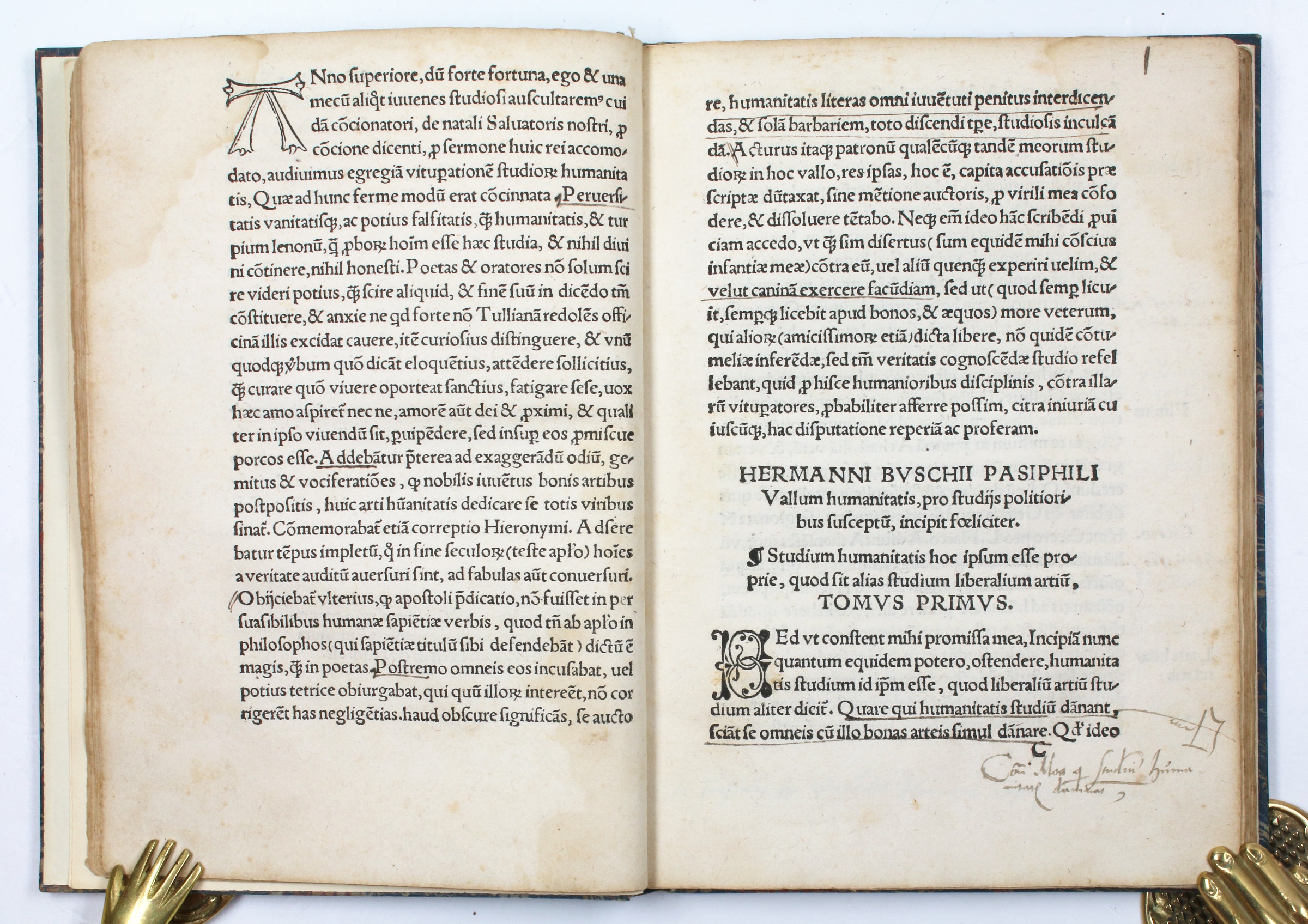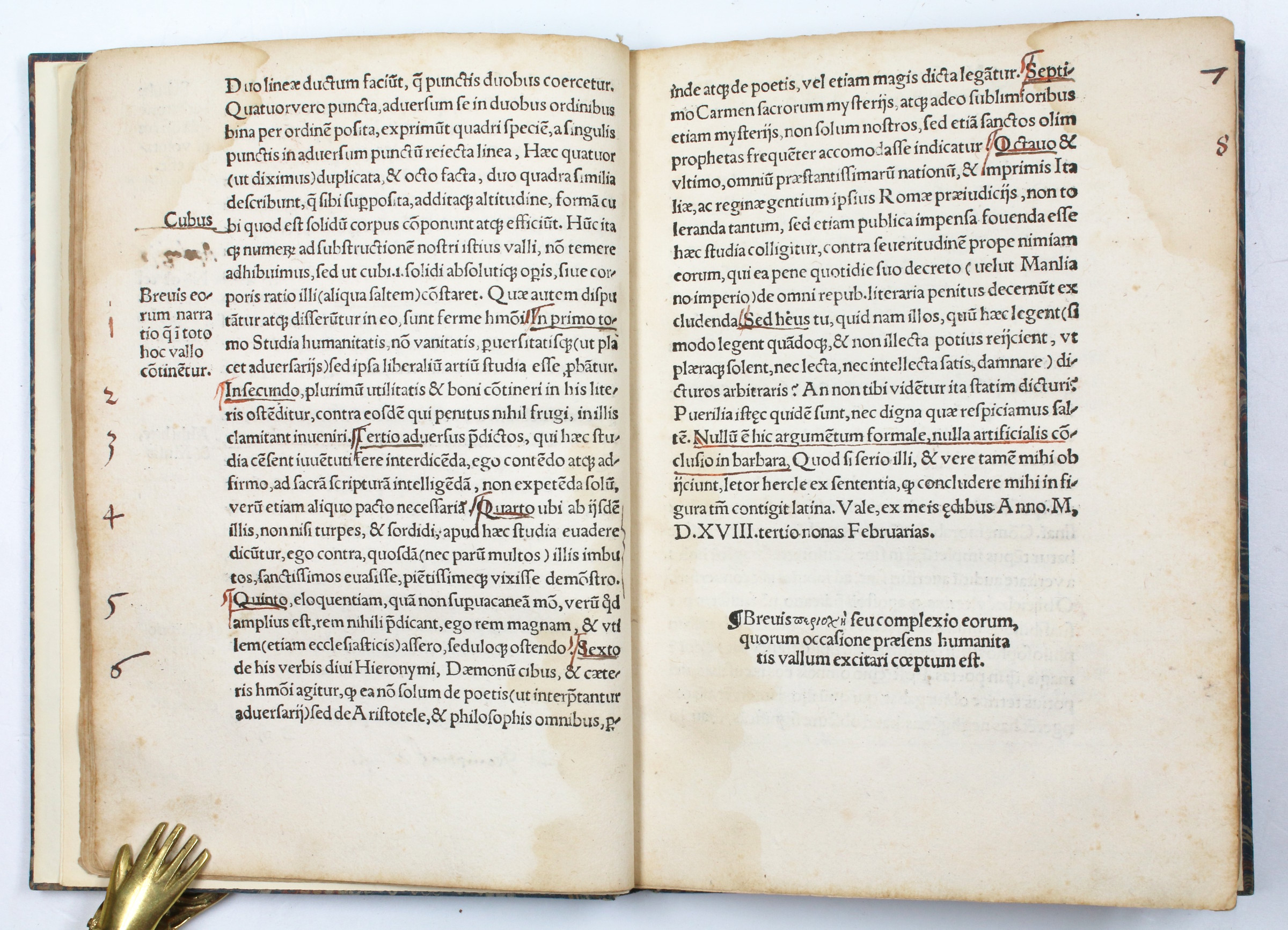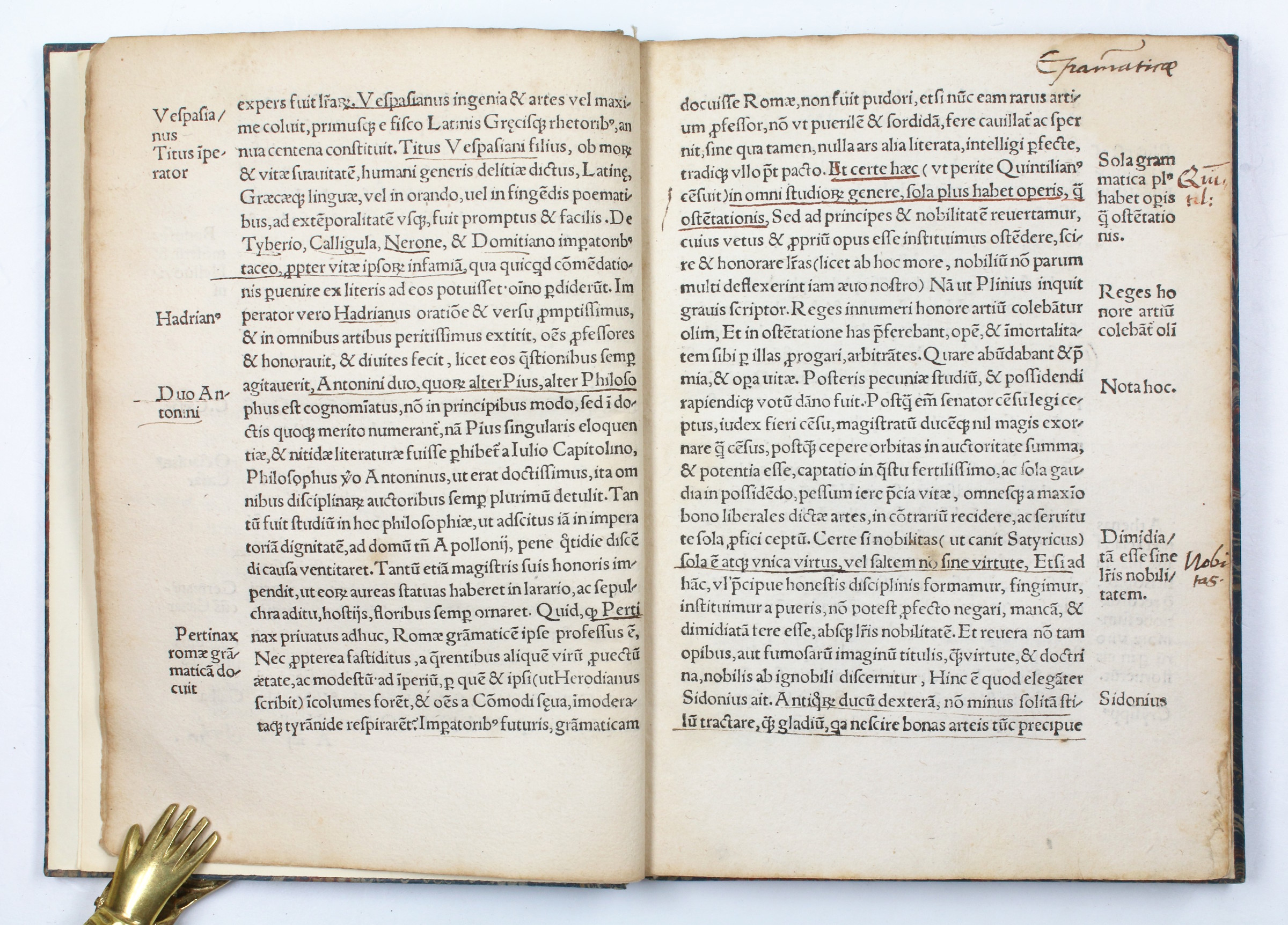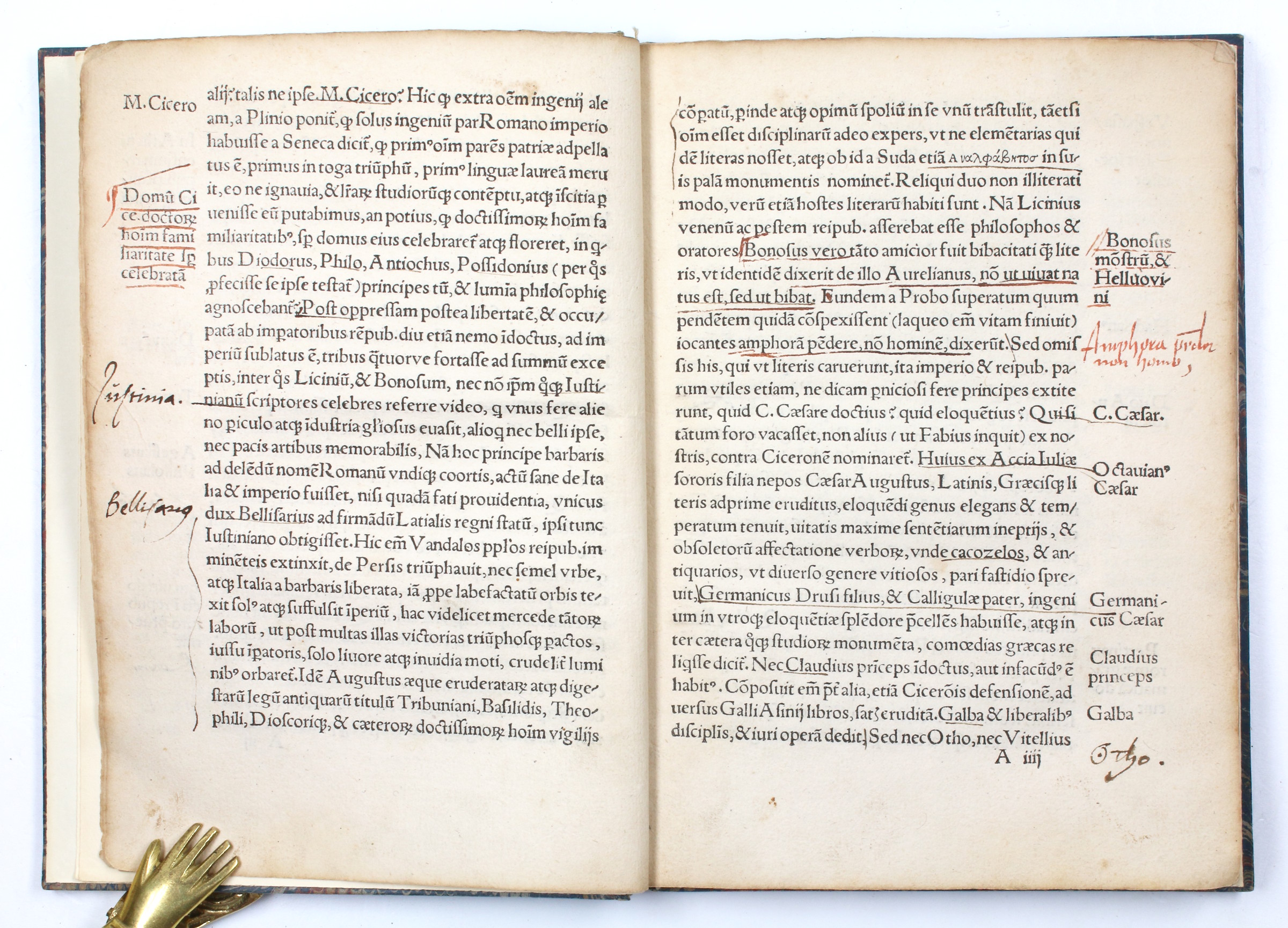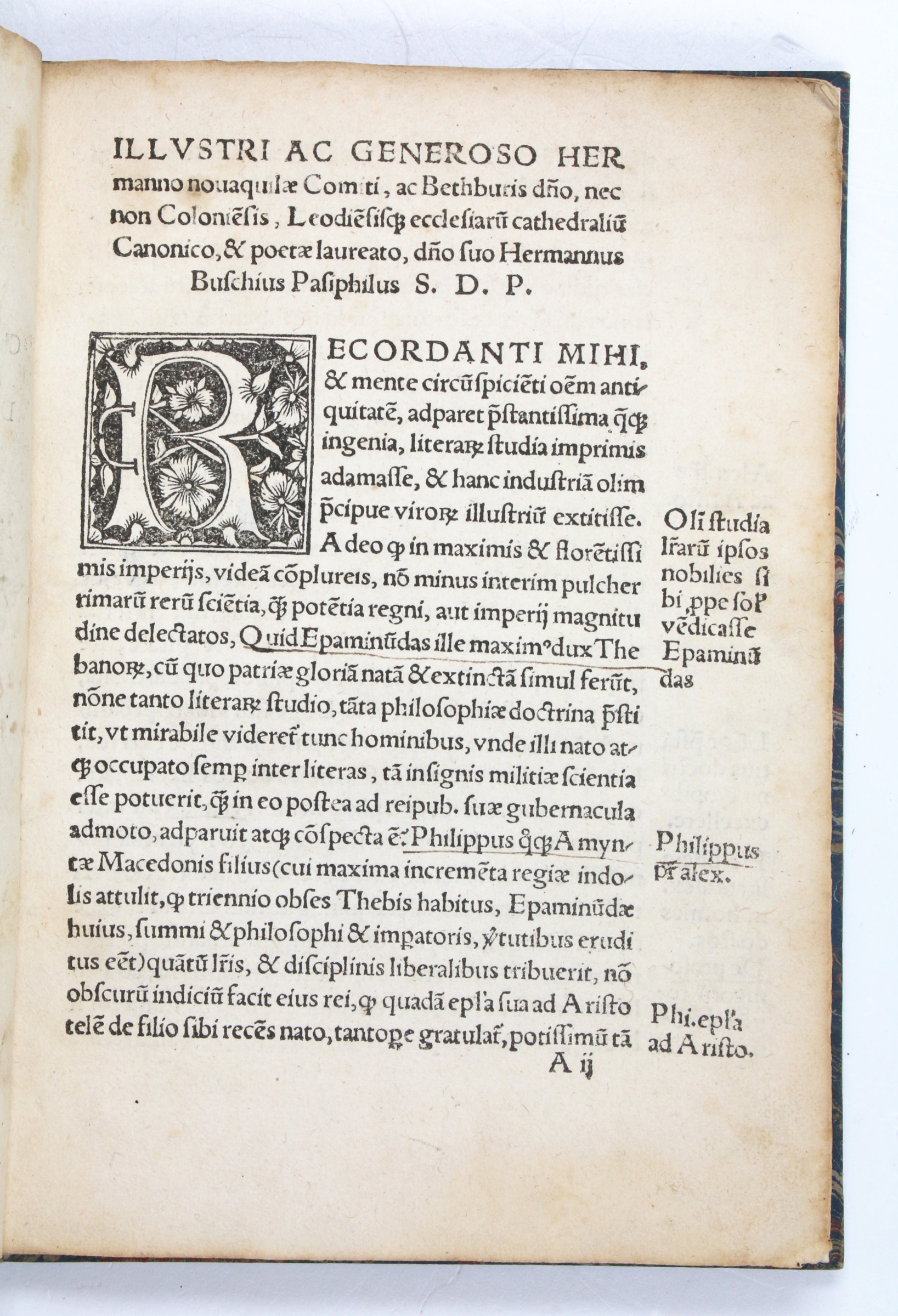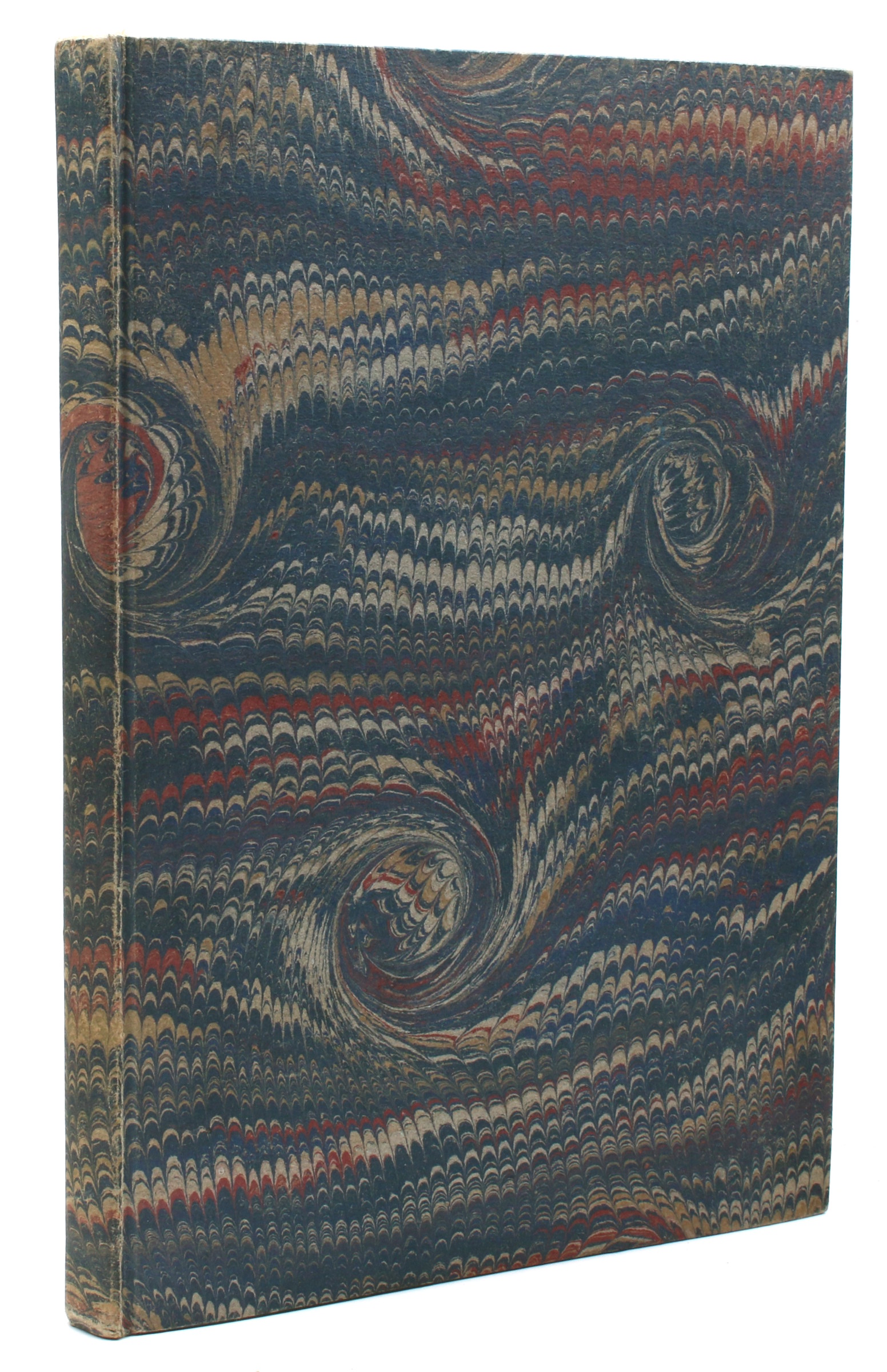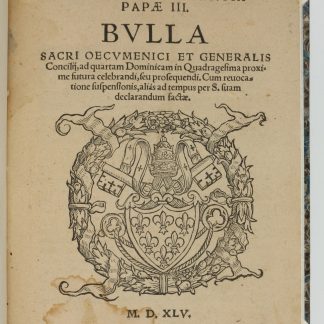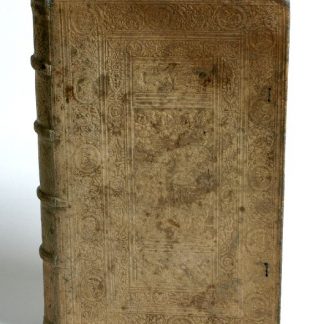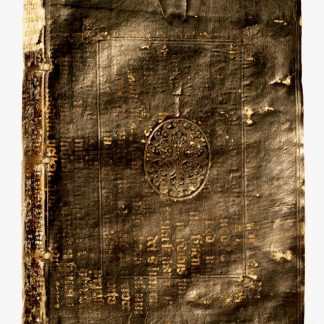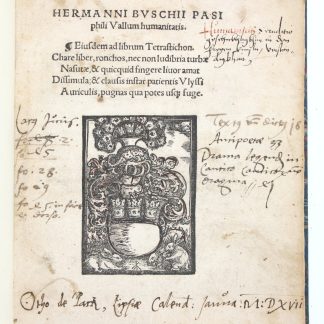A spirited formulation of the humanist ideal: Otto von Pack's annotated copy
Vallum humanitatis.
4to (145 x 202 mm). (60) ff. With woodcut capitals and printer's device on title-page. Numerous handwritten annotations in very early contemporary hand of Otto von Pack. Modern marbled boards.
€ 12.500,00
A defining humanist manifesto by a controversial figure from the circle of Erasmus and Thomas More, owned by the forger and conspirator Otto von Pack (1480-1537), who famously almost triggered a civil war among the German princes.
This is the principal work of Hermann von dem Busch(e) (1468-1534), a manifesto for the humanist movement of his time which stresses the importance of classical studies in education. E. P. Goldschmidt, who later would own this copy, called the work one of the "best achievements" of the early 16th century's "gay anti-barbarous humanists", and one of the few "that can still be read with pleasure": a "spirited formulation of the humanist ideal" (The First Cambridge Press in Its European Setting, p. 39). Well-travelled and open-minded, Busch sided with Johann Reuchlin in the humanist's notorious dispute with the Dominican friars over the burning of the Talmud, and he has sometimes been tipped as one of the authors of the satirical "Epistolae obscurorum virorum" which lampooned the scholastic fanatics.
This copy's likely first owner, Otto von Pack, had been involved in several cases of minor and major fraud before he, in 1527, floated to the Protestant Landgrave Philip of Hesse an alleged plot by the Catholic German princes to attack members of the Reformation. He even produced a forged document to bolster these claims, leading Protestant princes to consider a pre-emptive strike. When he was found out, Pack fled to the Netherlands, where he was apprehended and executed. Still, questions remain surrounding the identity of possible co-conspirators (including Philip of Hesse himself). The incident did much to further poison the already soured and distrustful relationships between Protestant and Catholic German princes, as well as with the Emperor.
Pack left few records for scholarship: the marginal notes, in several hands including his own, must be regarded as one of the very few surviving primary source documents of his ideas in his own words. Even his signature, present here on the title-page in a bold hand, is vanishingly rare. It is dated in Leipzig, shortly after publication, though two final Roman numerals have apparently been trimmed at the edge of the leaf to read "Kalend. Janua. MDXVII": this must have been "MDXVIIII", or less than nine months after the publication of the book. At this time, Pack was studying at the University of Leipzig for a law degree.
With the ownership inscription and notes of Otto von Pack, ca. 1519. Later 20th century bookplates of the famed bookseller Ernst Philip Goldschmidt (1887-1954) and of the Cologne merchant and collector Hanns-Theo Schmitz-Otto (1908-92) on front pastedown. Sold by Venator & Hanstein, Cologne, in 2022 (lot 396) and acquired in the German trade.
Several annotations very slightly trimmed by the binder's knife. Final leaf somewhat soiled, chip to lower corner (without loss) and repaired closed tear. Altogether bright and clean, with both text and important annotations quite well preserved.
VD 16, B 9954. BM-STC German 171. Adams A 3339. Proctor 10593. ADB III, 640.

